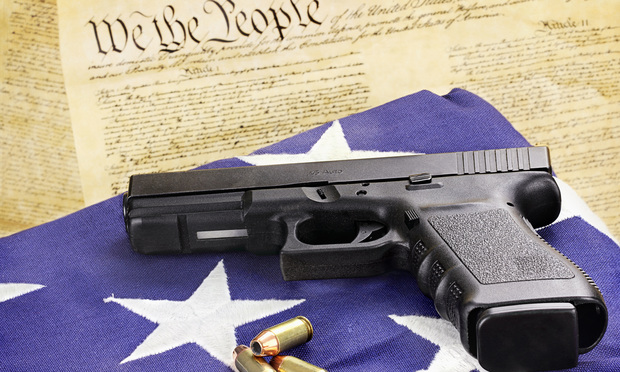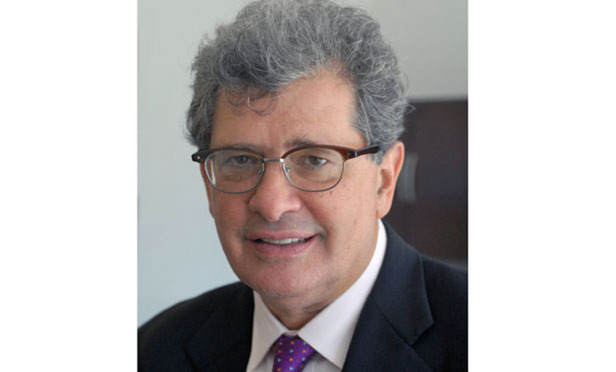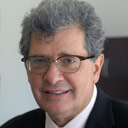Paul Shechtman
September 10, 2014 | New York Law Journal
Blindfolds Off: Judges on How They DecideBy Paul Shechtman
7 minute read

August 25, 2014 | New York Law Journal
Cases Address a Second Amendment Challenge and a Non-Citizen Felony Plea, Among Other IssuesPaul Shechtman, a partner at Zuckerman Spaeder, writes about noteworthy decisions that stood out among the 98 criminal cases the court decided during the 2013-2014 term, including a Second Amendment challenge to a gun conviction.
By Paul Shechtman
24 minute read

June 20, 2014 | New York Law Journal
'Jackson' and Voluntariness of Confessions 50 Years LaterPaul Shechtman writes: On June 22, 1964, 50 years ago Sunday, the U.S. Supreme Court decided 'Jackson v. Denno', in which it reversed the conviction of Nathan Jackson for murdering a New York City police officer. For thousands of New York defendants, Jackson has had a lasting effect: It spawned Huntley hearings, which are now a staple of our criminal justice system.
By Paul Shechtman
11 minute read

February 14, 2014 | New York Law Journal
Criminal Case Gives Rise to Evidentiary Brain-TeasersPaul Shechtman, a partner at Zuckerman Spaeder, analyzes the Court of Appeals' 4-3 ruling in 'People v. Morris,' which poses questions about Molineux evidence, the hearsay rule, and the effectiveness of limiting instructions.
By Paul Shechtman
11 minute read

May 17, 2012 | New York Law Journal
Reflections on Jury Nullification and a Dismissed IndictmentPaul Shechtman, a partner at Zuckerman Spaeder, analyzes the underlying issues in the government's recent attempt to prosecutr a man for pamphleteering in favor of jury nullification at the manhattan federal courthouse.
By Paul Shechtman
10 minute read

December 12, 2012 | New York Law Journal
Judge or Jury: Who Decides Facts Leading to Mandatory Minimums?Paul Shechtman, a partner at Zuckerman Spaeder and an adjunct professor at Columbia Law School, discusses 'Alleyne v. United States,' which the U.S. Supreme Court will hear in January, and the widely criticized decision that may be overruled after that hearing, 'Harris v. United States,' which held that facts that trigger the imposition of a mandatory minimum sentence can be found by the judge (not the jury) to a preponderance of the evidence (not beyond a reasonable doubt).
By Paul Shechtman
10 minute read

May 13, 2013 | New York Law Journal
How a Man Named Brady Made History 50 Years AgoZuckerman Spaeder partner Paul Shechtman recounts the crime of John Leo Brady and Donald Boblit, Boblit's multiple confessions (not all of which were provided to Brady's defense), the appeals of Brady's conviction, and the Supreme Court loss that became a landmark due process decision.
By Paul Shechtman
14 minute read

March 18, 2013 | New York Law Journal
Fifty Years Ago Today, 'Gideon' Affirmed a Right to CounselZuckerman Spaeder partner Paul Shechtman describes the circumstances and personalities behind what is perhaps the most famous decision in the history of American criminal procedure.
By Paul Shechtman
18 minute read

August 26, 2013 | New York Law Journal
Cases Address Youthful Offenders, Depraved IndifferencePaul Shechtman, a partner at Zuckerman Spaeder, writes that despite the New York Court of Appeals not having its full complement of seven members from late November to early June, it issued 89 opinions in criminal law cases, of which many are noteworthy.
By Paul Shechtman
20 minute read

August 27, 2012 | New York Law Journal
Issues in 11 Notable Cases Range From Admissibility to WithdrawalPaul Shechtman, a partner at Zuckerman Spaeder, writes: What a difference a decade makes. Ten years ago, the New York Court of Appeals decided 42 criminal law cases, only nine of which were non-unanimous decisions. This past term, however, the court decided 98 criminal law cases, of which 33 were non-unanimous. Eleven cases stand out as noteworthy decisions from the term.
By Paul Shechtman
23 minute read
Trending Stories
- 1Increased Costs Proved a Drag on Profits for PA's AmLaw 200 in 2024
- 2Judicial Ethics Opinion 24-81
- 3Mental Health Issues Don’t Get a Holiday
- 4'It's Got to Be a Wake-Up Call:' Atlanta Attorney Hopes $16M Verdict Spurs Training Changes at Hotels
- 5FTC Bans 'Junk Fees' in Live-Event Tickets and Short-Term Lodging
More from ALM
- Scan In Progress: Litigators Leverage AI to Screen Prospective Jurors 1 minute read
- Legal Speak at General Counsel Conference East 2024: Match Group's Katie Dugan & Herrick's Carol Goodman 1 minute read
- Legal Speak at General Counsel Conference East 2024: Eric Wall, Executive VP, Syllo 1 minute read



